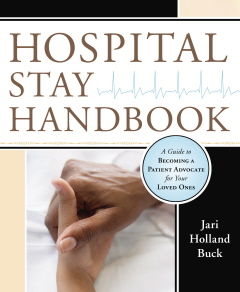The eight ‘no payout’ errors relate to:
- air embolism
- blood incompatibility
- catheter-associated urinary tract infection
- decubitus ulcer (pressure sores)
- vascular catheter-associated infection
- surgical site infection
- mediastinitis (infection of the chest area)
- falls and trauma
- objects left in the body after surgery.
Aside from digging deep into health insurers’ profits, the errors are also going unchecked, and it’s almost as though hospitals and doctors are being rewarded for making them, the CMS believes" (http://www.wddty.com/03363800368870404399/doctor-errors-the-8-things-that-must-never-happen-to-you-in-hospital.html).
Of these eight problems, my husband suffered from five of them (3, 4, 5, 6, 8). Additionally, the "upcoming" denials around "hospital-acquired killer infection C. difficile and deep vein thrombosis" would also have lead to significant cost shifting to us since he contracted c. diff the first month of an 8-1/2 month hospital stay and wore "pressure boots" to prevent deep vein thrombosis for 6+ months. This means that, should his hospitalation have occurred after this ruling, we would be responsible for a sizable chunk of $1.75 million in claims since several of these "errors" occurred more than once, with catastrophic results.
How will the hospitals respond to this?
- By addressing the issues, with huge costs associated with prevention? I'm doubtful since they have been aware of these preventable mistakes for some time and only the better institutions have done anything to address them. That means the brunt of the exposure shifts to us to prevent the mistakes through our diligence or pay the price in loss of health, life and/or financial stability.
- By ignoring culpability? Since they maintain the records for every hospitalized patient, I can envision an escalation in battles and delays over record requests and legal wrangling requiring us to "prove" they were the cause. And.if there are no "baseline" records proving our patient did not have the condition upon admission, we are at a loss.
- By admitting there is a problem (huh!!!) and backing off of both passive and active resistance to advocates? VERY doubtful as admission of responsibility implies a "less than perfect or desirable" institution, something they believe most patients would avoid. I can't even get hospitals to carry my book in their bookstore since it implies their "less than perfect or desirable" status.
- bankruptcy to avoid payout - Enron. "Over the past decade, Enron has been listed for numerous spills of hazardous materials on the Environmental Protection Agency's Emergency Response Notification System Database (EPA, ERNS, respectively). Substances involved in these spills include: natural gas, crude oil, asbestos, arsenic, polychlorinated biphenyls, isobutane, sodium hydroxide, ethane and various other chemical substances. In 1998 Enron subsidiary, Wessex Water, was ranked by the UK Environment Agency as the fourth worst polluter with five prosecutions resulting in total fines of £36,000 ($56,000). Environment Agency director of operations, Archie Robertson said, 'The companies included in our Hall of Shame have let down the public, the environment and their own industry' (http://www.foe.org/WSSD/enron.html);
- catastrophically slow response and payout - 1989 Exxon Valdez oil tanker spill of more than 11 million gallons in Prince William Sound, Alaska. "What did the company do? According to most observers, too little and too late. The action to contain the spill was slow to get going. Just as significantly, the company completely refused to communicate openly and effectively" (http://www.mallenbaker.net/csr/CSRfiles/crisis03.html). The company is still appealing a $2.5 billion USD punitive ruling, and has not paid any damages yet" (http://en.wikipedia.org/wiki/Exxon_Mobil);
- "we were just cutting costs" (Union Carbide Pesticide Plant in Bhopal, India in 1984 resulting in "23,000 deaths... In 1989 Union Carbide, which is now a subsidiary of Dow Chemical, paid the Indian Government £470m in a settlement which many described as woefully inadequate. In November 2002 India said it was seeking the extradition of former Union Carbide boss Warren Anderson from the US. Mr. Anderson faces charges of 'culpable homicide' for cost-cutting at the plant which is alleged to have compromised safety standards" (http://news.bbc.co.uk/onthisday/hi/dates/stories/december/3/newsid_2698000/2698709.stm);
- government culpability and public futility - Love Canal Chemical Waste Landfill site, City of Niagra Falls, NY and Hooker Chemical and Plastics Corporation (now a part of Occidental Petroleum or OxyChem). "Throughout the ordeal, homeowners' concerns were ignored not only by Hooker Chemical... but also members of government. These opponents argued that the area's endemic health problems were unrelated to the toxic chemicals buried in the canal. Since the residents could not prove the chemicals on their property had come from Hooker's disposal site, they could not prove liability. Throughout the legal battle, residents were unable to sell their properties and move away... both the school board and the chemical company refused to accept liability... [and] considerable public resistance from residents within the community: the mostly middle-class families did not have the resources to protect themselves, and many did not see any alternative other than abandoning their homes at a loss" (http://en.wikipedia.org/wiki/Love_Canal);
- it's apparently cheaper to pay than fix the problems - "For the fourth time in the
past year, a Resurrection Health Care hospital has been cited for violations and fined by the federal Occupational Safety and Health Administration (OSHA)... OSHA determined "the employer did not ensure that appropriate procedures were adopted to minimize injury and loss of life and implemented in the event of an emergency." As a result of the findings, the hospital received six serious citations and was fined $13,000... The health and safety violations at St. Mary of Nazareth Hospital are just the latest in a recurring pattern at Resurrection Health Care facilities... all [have] been cited and fined by OSHA since 2003. 'The irresponsibility of administrators at St. Mary's and its corporate parent, Resurrection Health Care, endangers both patients and employees,' said Henry Bayer, executive director of the American Federation of State, County and Municipal Employees (AFSCME) Council 31" (http://www.reformresurrection.org/st.-mary-of-nazareth-hospital-fined-for-mishandling-chemical.html). And this is a hospital!!!
Bottom line, GET IN THE HOSPITAL ROOM AND STAY THERE, 24/7! Life is too precious to subject it to this risk!


No comments:
Post a Comment